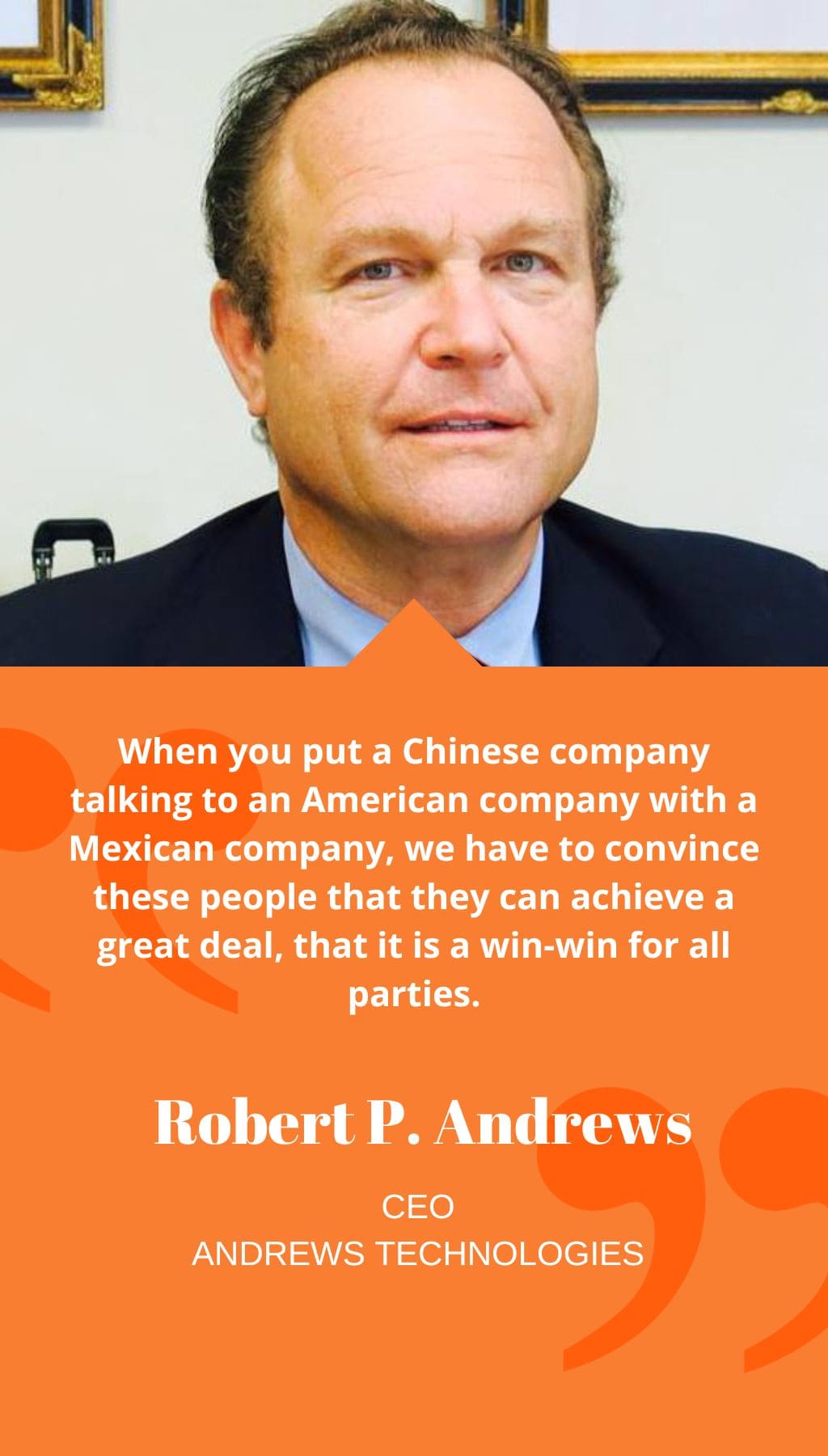
- Mexico | 23 March 2016

How did Andrews Technologies come about?
My previous company, Andrews Group International, was involved in seismic data processing and reservoir characterization, with direct work with Pemex. After it merged with Core Laboratories, I founded Andrews Technologies Inc. (ATI). After a trip to China, I began doing business with that country. Initially, I managed to reach an agreement to represent the Geophysical Processing Office of CNPC (BGP) in Mexico, and we obtained contracts with Pemex worth $400 million for seismic work. We also provided drilling services for years.
Then, we started to see the issue of supplies: mud pumps, top drive systems, and drilling equipment from a number of Chinese manufacturers. We sold our first platform to Pemex in 2003, taking care of everything from design to commissioning, operator training, and maintenance. In most cases, ATI has the contract and subcontract everything to its different partners. Personally, I have been doing business with Pemex for 33 years, with contracts worth more than a billion dollars. We are currently in the process of modernizing several Pemex drilling platforms, with a first contract signed in July 2014 and running until 2020.
Has the energy reform process affected Pemex’s investments?
Pemex programs continue. Platform modernization is a decision to save money, as opposed to buying new platforms. In total, they are restoring a total of 20 platforms in the Southern Region. The other big business segment is marine operations. We are in the process of bidding on packages for 3,000 hp modular platforms in the shallow waters of Tabasco. All the work we are trying to achieve with Pemex is for areas that Pemex is going to maintain anyway after the reform.
You import a lot of equipment from China. How will local content requirements evolve in Mexico?
Mexico wants to emulate Petrobras in the long run, to generate a fairly active local industry. In Brazil, there are already large shipyards and manufacturing capacity. Pemex is under pressure to increase the local content of its suppliers, but the problem is that there is currently not enough capacity in Mexico. There is no one with the relevant API certifications except for two small companies in the north that have an API 4F license. There is not a single manufacturer with an API Q1 license, while in China or the United States, there are pages and pages of manufacturers that have it. There are some Mexican service providers, but the big players are still foreigners. This does not mean, however, that the situation will not change in the future.
ATI has a multicultural executive team. How does this help you achieve business?
Having local managers is the only way to operate. It is very important to use local talent. We are communicators, we reach agreements. We should not just speak the local language, but we have to understand the culture. When you put a Chinese company talking to an American company with a Mexican company, we have to convince these people that they can achieve a great deal, that it is a win-win for all parties.
What are the challenges of doing business with Pemex?
Our company staff has been doing business with Pemex for more than 30 years. Despite this, the process remains very complex. The paperwork is staggering. For foreign companies, it is very difficult to understand this: the process is too bureaucratic and needs to be accelerated. Due to corruption issues, there are a lot of controls that make the decision-making process slow and cumbersome, because no one wants to appear responsible.














